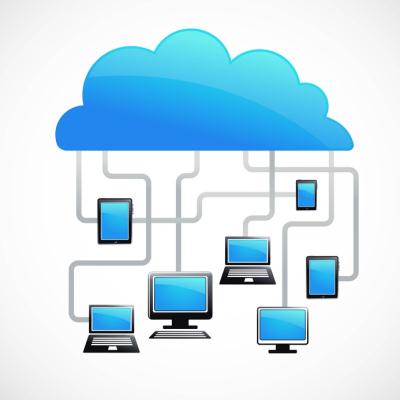With the widespread use of mobile devices in the workplace, more companies are questioning the relevance of their traditional IT infrastructure. Mobile devices take advantage of cloud computing, and every new generation of tablets and smartphones have productivity apps that can accomplish more tasks. Before you switch out your old technology, you will first want to consider the data needs of your business.
Does your business primarily create data or consume data? Mobile devices perform well at consuming data over a cloud network, but they are limited by both hard drive space and small screens. Moreover, many mobile devices do not use a keyboard and mouse, so writing anything longer than a short email will prove burdensome. And despite being able to do more with each generation, many devices still fall short of the processing power desktops offer, and the operating systems and applications on mobile devices are typically stripped down versions of the real thing. As much as every company would like to empty out the room full of servers, replace big workstations with tablets, and give every employee a Segway, this vision may not be a good fit for every business.
The Strengths and Weaknesses of Mobile Devices
Not every business creates vast amounts of data; some companies use their technology largely for retrieving information on products or clients, tracking company time, and communicating both internally and with their customers. Mobile devices can perform all of these tasks well. If your business primarily consumes data, and you know the IT needs of your business are not likely to change, then switching to a mobile cloud-based IT infrastructure is a real possibility.
One drawback to a mobile IT infrastructure is it that mobile devices are not designed for upgrades. Whereas with a PC, you can pop it open and add some RAM, the warranty with devices can actually be voided if you crack open the seal. We suspect device manufacturers have intentionally set it up like this to force you into buying a new device when your service contract expires. Having your company upgrade to all new devices every few years might be too much of a strain on the budget.
Adapting Your Traditional IT Infrastructure to the Cloud
A traditional IT infrastructure uses computer components like servers, desktops, and laptops. If your company cranks out spreadsheets, presentations, media, and reports on a regular basis, then you are going to want to stick with a traditional infrastructure in order to maintain the levels and quality of data that you are used to creating.
With cloud computing, it is possible to host your entire IT infrastructure over the cloud. There are several advantages to doing this, like increased security and saving electricity, but this might not make the most fiscal sense if you have an existing IT infrastructure that is already in place and meeting your needs. Modifying and making better use of your existing IT infrastructure would be a smart move to consider before moving everything over to the cloud. Making your current IT infrastructure run at maximum efficiency can be achieved through a solution that Quikteks provides called virtualization.
At this stage in the development of technology, the best route for most businesses is to use cloud computing and mobile devices to complement the traditional IT infrastructure. One way to bring the two camps together is to take security measures and create policies that will allow employees to use their own mobile devices at work. You can also provide key employees mobile devices to improve communication and allow work to be done remotely. All the data stored on your company’s in-house IT infrastructure can also be backed up to a cloud database offsite; this will make sure you still have a business in case a disaster strikes.
Every business has different technology needs, we at Quikteks will gladly take the time to learn your company’s unique IT needs and recommend best practices that will help your business to run efficiently and ensure your data is secure. To learn more about virtualizing your current IT infrastructure, or to find out if a mobile and cloud-based infrastructure is right for your company, give your friendly neighborhood IT experts a call at PHONENUMBER.

